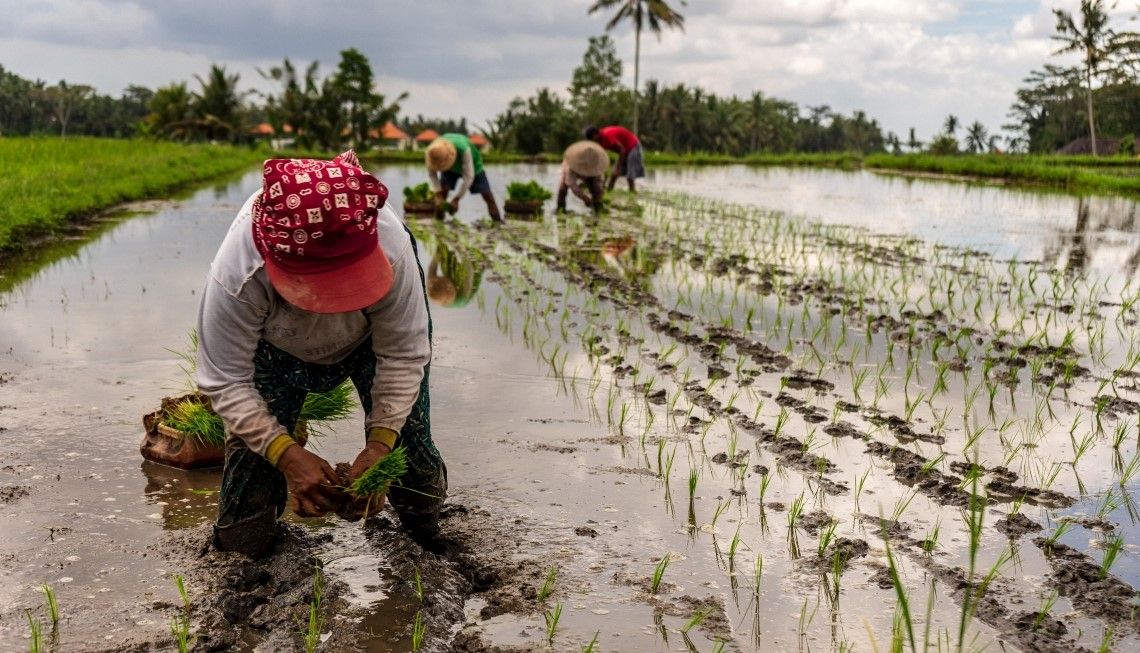How Pakistan is navigating water scarcity in agriculture
By Jaz Low
Shahrukh Khan, National Coordinator at Helvetas Swiss Intercooperation Pakistan, shares how the organisation is improving water use efficiency and lowering methane emissions from rice crops.

In response to the sector’s seemingly desolate outlook, Helvetas Pakistan has introduced the WAPRO initiative. The independent, not-for-profit organisation implements a variety of development projects to better the lives of disadvantaged communities.
Shahrukh Khan, National Coordinator at Helvetas Swiss Intercooperation Pakistan, highlights how WAPRO is incentivising farmers to adopt water-saving tools. They are also involved in influencing policymakers to adapt regulatory frameworks for improved water efficiency.
Improving water efficiency with tubes
One of the technologies WARPO promotes is the Alternate Wetting and Drying (AWD) tube, which helps farmers to reduce their irrigation water consumption without decreasing rice crop yield.
AWD tubes have perforations at the bottom, which allows water from the soil to enter the tube. A scale embedded within the tube then measures the water depth.
Should water levels fall below the optimal volume, farmers can rely on the tube to know exactly how much water they need to replenish. This is as opposed to continuously flooding the fields and squandering away the scarce resource, Shahrukh says.
“AWD technology can lower irrigation water consumption by 25 per cent, which in turn reduces the diesel fuel consumption for pumping water and the methane emissions that stem from continuous flooding,” he notes.
But despite the above benefits, the uptake rate of this technology has been lower than anticipated. Sharukh attributes this to farmer residences being too far away from the fields, making it a hassle for them to travel long distances to frequently monitor the tubes.
To overcome this challenge, WAPRO is developing a smart AWD tube that will automatically inform farmers when water levels have dipped below a certain limit. The system relays irrigation warnings to their phones, so farmers only ever need to make trips to supply water.
Pakistan is facing tremendous water stress
There is a need to improve Pakistan’s water productivity for a number of reasons.
Due to Pakistan’s geography, the country bears the brunt of transboundary water pollution. This, coupled with the outdated water infrastructure and diminishing reservoir capacity, spell a recipe for disaster.
The country’s per capita annual freshwater availability has been falling exponentially from about 3,950 cubic meters in 1965 to below the water scarcity threshold of 1,000 cubic meters today. “You can imagine the speed at which our water resources are depleting and the tremendous water stress Pakistan is facing,” Shahrukh adds.
Poor agronomic practices are also to blame: very few farmers employ the latest water-saving technologies like laser land levelling. Uneven land does not bode well for water absorption. Creating a flat, table-top-like surface with a laser beam allows irrigation water to reach every part of the field with minimal waste from runoff.
Yet, Pakistan still trails far behind when it comes to putting this into practice.
Improving agricultural efficiency
Catching up on the latest technology not only spells out environmental benefits, but it can help make farmers’ work more efficient too.
Currently, rice seedlings grown in a nursery are pulled and transported to the fields. In Pakistan, women rice transplanters do this by hand notwithstanding harsh weather conditions. This forces them to be in direct contact with the scorching hot paddy water under direct sunlight.
“Often, they are accompanied by their children and these less than ideal working conditions may pose a serious health hazard to the young ones,” Sharukh adds.
Mechanical rice transplanters may provide some relief. This is a machine that creates equal distancing between seedlings to optimise plant density in the field and maximise yield.
“The technology helps automate manual work and will be able to reach a degree of precision that cannot be achieved physically,” Shahrukh explains.
But replacing human labour with machines may adversely affect the livelihoods of women rice transplanters. To manage this, Helvetas is training them and their children in vocational trades.
One such area of work is nursery raising, where workers will learn how to raise healthy and strong seedlings by making sure that soil conditions are suitable for growth, for example.
Incentivising sustainable practices
Aside from supporting farmers’ in implementing agritech, Helvetas Pakistan plays an active role in influencing policy to scale sustainable agricultural practices.
They have signed agreements with the On Farm Water Management wing of the Agriculture Department to promote the use of AWD tubes as a water-saving technology in rice paddies.
At the same time, Helvetas provides farmers with access to agritech tools at subsidised rates. For instance, laser land levelling technology is available to farmers on a 50 per cent cost-sharing basis.
Farmers who comply with the Sustainable Rice Platform standard, which promotes resource efficiency and sustainability in the global rice sector, can sell their produce to rice mills at a premium rate.
“Earning higher incomes is one of the greatest motivating factors for farmers to adopt these technologies,” Shahrukh shares.
Helvetas Pakistan is sparing no effort to promote its water stewardship approach. The future of the rice industry may appear bleak for now, but tools such as the AWD tube, land laser levellers, and mechanical rice transplanters can help turn things around.